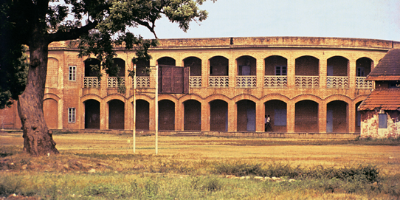jul 10, 1835 - W. Bentinck- English Education Act 1835
Description:
Lord William Bentinck, Governor General of India from 1833-35, a hard core utilitarian, almost wholly endorsed Macualy's minute. During his tenure , The Charter Act 1833 was passed in England, according to which "No native of India , should be disabled from holding any place, employment on the basis of religion, place of birth, descent or color”.He passed the English Education Act 1835, according to which :
1. Great object of the British Government ought to be the promotion of European literature and science among the natives of India; and that all the funds appropriated for the purpose of education would be best employed on English education alone.
2. His Lordship in Council directs that all the existing professors and students at all the institutions under the superintendence of the Committee shall continue to receive their stipends.
2. It has come to the knowledge of the Governor-General in Council that a large sum has been expended by the committee on the printing of Oriental works; his Lordship in Council directs that no portion of the funds shall hereafter be so employed.
4. His lordship in council directs that all the funds which these reforms will leave at the disposal of the Committee be henceforth employed in imparting to the native population a knowledge of English literature and science through the medium of the English language
Aftermath:
There was widespread opposition about exclusive English education. Both Hindus and Muslims opposed it.- Feared Anglicization .Opposition also came from some British officers themselves (McNaughten and H T Princep). They wanted Oriental education support to continue in tandem with English.
Later report of the committee 1835, supported Vernacular education.
Significance:
It opened Europe to India- through promotion of Western Education- Literature and Science (SC Ghosh- milestone in the history of India).
An unintended consequence of Bentinck resolution was promotion of Vernacular Languages and Vernacular Education
1. Naik, J. P., & Nurullah, S. (1974). Students' history of education in India 1800-1973. MacMillan company of India limited.
2. S C Ghosh, “History of education in modern India: 1757-2012
Added to timeline:
Date:
jul 10, 1835
Now
~ 190 years ago
